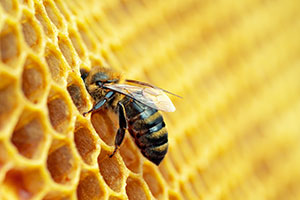 Twenty-plus years ago my Yankee schoolteacher wife Laurie and I had a swimming pool installed at our home, affectionately known as High Grass Manor due to my aversion to yard work. Since our backyard slopes downhill and to the right, we got one of those nice fiberglass jobs. They hauled loads of sand and dirt and covered it with rip-rap rock, which ultimately gives it the look of volcanic mountain with a pool in the middle.
Twenty-plus years ago my Yankee schoolteacher wife Laurie and I had a swimming pool installed at our home, affectionately known as High Grass Manor due to my aversion to yard work. Since our backyard slopes downhill and to the right, we got one of those nice fiberglass jobs. They hauled loads of sand and dirt and covered it with rip-rap rock, which ultimately gives it the look of volcanic mountain with a pool in the middle.
It was finished just as school let out, so Laurie spent the summer sitting in a floating chair, drinking cold drinks and reading cheap romance novels.
Meanwhile, I’d recently taken up beekeeping again and had placed two hives at the right and rear of the pool mountain. The bees chose to make their final approach to the hives over the pool – and in so doing discovered their closest and cleanest water source. They also discovered Laurie and decided that she made the perfect island for them to land on and then suck water off her bathing suit.
Now, friends, you haven’t lived until you have seen a woman contentedly floating in a swimming pool covered in thirsty, buzzing bees!
The remarkable life of bees
 When it comes to God, some people don’t believe there is one. Some are well educated, brilliant folks who have more degrees than a thermometer. Some are just common folks like me. Their reasons for disbelief are many and varied. And when it comes to creation, most tend to believe that all this happened through some type of evolution – just a big cosmic accident. But that seems too thin.
When it comes to God, some people don’t believe there is one. Some are well educated, brilliant folks who have more degrees than a thermometer. Some are just common folks like me. Their reasons for disbelief are many and varied. And when it comes to creation, most tend to believe that all this happened through some type of evolution – just a big cosmic accident. But that seems too thin.
Take bees, for example. They’re relatively small insects who live in hives averaging somewhere between 50,000 to 60,000 bees. They function together as a team focused on the survival of their hive. Inside the hive, three types of bee can be found. The queen’s sole purpose is to continuously lay eggs. A few male bees’ only job is to mate with a new queen, after which the male dies. The rest are worker bees.
Among the worker bees, there are many distinct roles. Some find and bring back nectar to make honey. Others find and transport water, used in making honey. Some make the honey. Others feed the queen and the drones and tend to the eggs and larvae. Some stand at the entrance to protect the hive, while others continuously fan, serving as the HVAC for the hive. The worker bees also produce four specific substances. Honey, of course, which they use for food. Wax, which they make and shape into hexagon-shaped storage systems for eggs and honey. Propolis, or bee glue, which they use to seal the hive and everything in it. And finally, they produce royal jelly, which they feed to certain eggs to create a new queen.
Bees also communicate with each other through pheromones or by movements within the hive that tell other bees where to find nectar. And they can fly – very well, in fact. If you’ve ever gotten crossways with them, you know they can fly coordinated combat missions and effectively deliver their weapon payload – a painful, venom-laced stinger – right on target. They also have a precision navigation system on board that gets them to and from the hive.
Now, in all of this, the bees consult no manuals for effective hive operations. They receive no flight, combat, or navigation training. They receive no courses and consult no recipes for any of the substances they produce. Yet every hive does it the same way. Perfectly. Every time, in every hive.
Can complexity be accidental?
So for my country boy self, it just makes no sense that all this complexity in just one species of insect could happen accidentally. Or as the result of cosmic explosion. Unless, of course, God is behind the evolution or set off the explosion, with everything then guided by the Master’s Hand.
In the end, some just don’t believe that God and science are compatible, when in fact they most certainly are. It is interesting to note that the Big Bang Theory, which essentially says creation started with a singular explosion, was the product of a mathematician and cosmologist named Georges Lemaître, who was also a Roman Catholic priest! He absolutely believed God created the universe, and that science and mathematics were the doors through which its truths could be discovered by human beings
This is the first part of a series. In my next essay, we’ll take a deeper dive into the hive, to find out how we can discover God more clearly through His creation.
Deacon W.S. “Bill” Melton Jr. serves at St. Michael the Archangel Parish in Gastonia.


